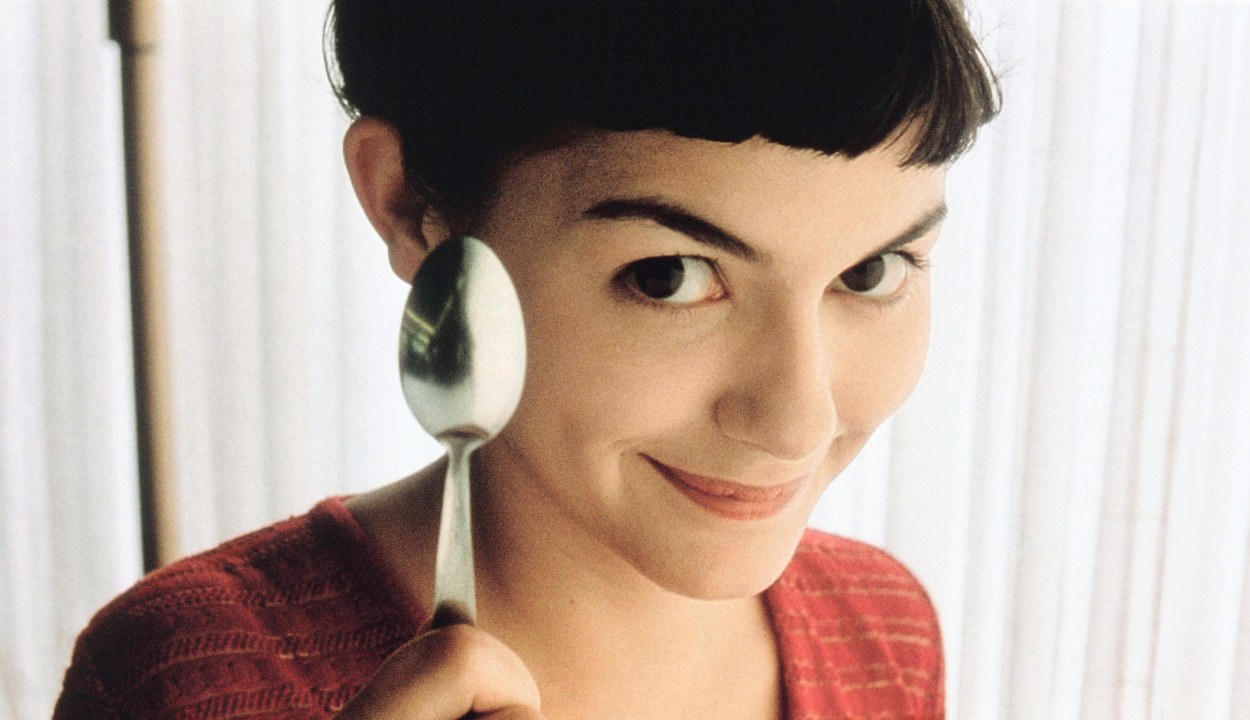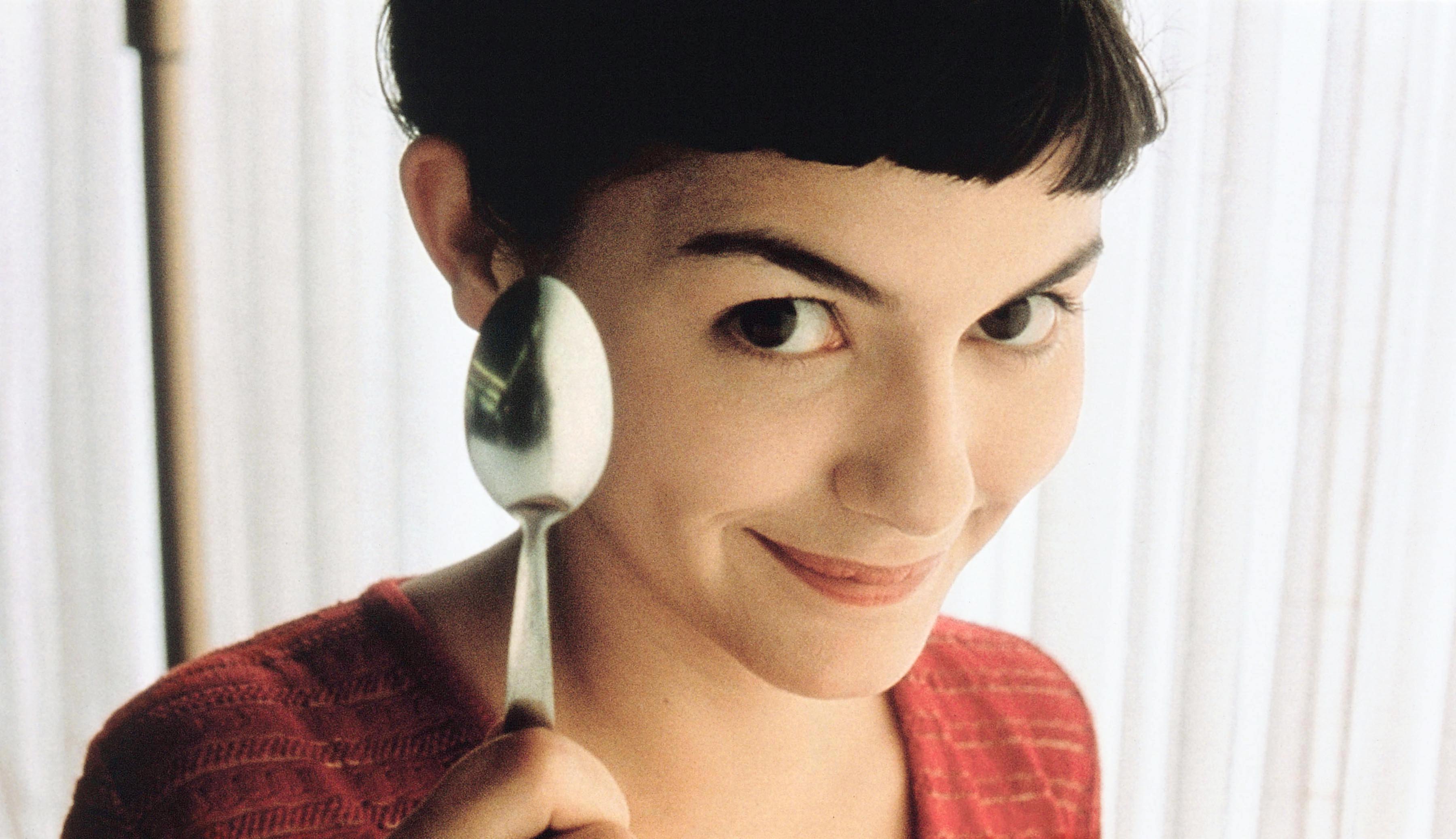At the best of times, January is a depressing month. Everyone is feeling poor and bloated after the Christmas extravaganza, and the days are still short and cold, with the nights drawing in far too early. Nobody has ever said ‘I’m really looking forward to January’. Which is why, with the spectre of illness and infection still stalking the land, the best thing that we can do is to stay at home with some of the most cheering films that we can find, and hope to banish the January blues that way.
Of course, everyone enjoys a whacky comedy, or a gripping thriller, and they definitely have their place. But these films represent some of the most uplifting and purely enjoyable examples of cinema that we’ve seen over the past years. From the very best romantic comedies to dramas that make you feel genuinely glad to be alive, here are some unmissable, endlessly rewatchable pictures that will make even the darkest, wettest and coldest of nights feel positively cheerful.
The Shawshank Redemption (1994, Amazon)
Believed by many (including the voters of the IMDB) to be the greatest film ever made, this seems less and less of an exaggeration as the years go past. Frank Darabont’s wonderful adaptation of a Stephen King short story, Rita Hayworth and the Shawshank Redemption, focuses on the friendship between two prisoners, lifer Red (Morgan Freeman) who takes pride in his ability to get hold of any item for the right price, and former banker Andy Dufresne (Tim Robbins), serving a double life sentence for the murder of his wife and her lover: crimes that he continues to deny that he committed.
It seems extraordinary to think that a long, male-heavy film about the trials and occasional joys of life in prison has been so popular with so many people, and endless critical takes on the film have posited the idea that it is everything from a religious allegory to a particularly sophisticated political critique (certainly, Bob Gunton’s hypocritical warden can be compared to Nixon, amongst others). But it’s ultimately the most cathartic and uplifting of films. You’ll be willing Andy’s decades-long scheme to escape prison to finally come to fruition: it’s glorious, hairs-on-the-back-of-neck stuff.
Juno (2007, Amazon Prime)
The best plots begin with a character who does something unexpected. And nowhere is this more true than cult classic Juno. This goofy coming-of-age story is about a high school girl who gets pregnant and, instead of getting an abortion, offers her unborn child up for adoption by a failed rockstar and his wife (played by Jennifer Gardner). Critically acclaimed and adored at the time, Juno was Elliot Page’s breakout role. A cracking soundtrack, a comic script and nuanced acting from Page turn a morally complex storyline into something truly uplifting.
Shakespeare in Love (1998, Netflix)
Tom Stoppard has written many distinguished scripts for film, but this, his only wholly original one (nominally co-written with Marc Norman, who at least had the grace to look embarrassed when he collected the Oscar with Stoppard) is one of the most skilful and enjoyable romantic comedies ever made. Capably directed by John Madden and acted to the hilt by a brilliant cast that includes everyone from A-list Hollywood actors to British character players (if you’ve ever wanted to see Ben Affleck and Martin Clunes sword fighting, here is your chance), it is one of the rare films about a genius that manages to humanise them and allows the audience to understand exactly how Shakespeare went from being a semi-successful playwright and actor to the icon that he has now been for centuries.
Stoppard skilfully mixes the high romance of the love affair between Joseph Fiennes’s Shakespeare and Gwyneth Paltrow’s aristocratic Viola de Lesseps with hilarious jokes that veer between full-blown farce and the wordplay that he is synonymous with, and the film ends with a perfectly judged finale that is both deeply moving and hopeful, restoring both ambiguity and beauty to the romantic comedy genre. Many decried its winning the Best Picture Oscar over Spielberg’s Saving Private Ryan, but this is the far more rewatchable and purely enjoyable of the films, even if the association with Harvey Weinstein does have to be put out of mind.
The Princess Bride
There are continual rumours that this most perfect of comedies is going to be remade, to which the only response has to be ‘Why bother?’ Rob Reiner’s film, based on a brilliant William Goldman novel (Goldman also wrote the script) manages to be both postmodern and wholly sincere, a properly romantic love story between two perfectly matched characters that nonetheless manages to incorporate all sorts of clever and farcical bits of business.
Whether it’s Peter Cook’s Very Impressive Clergyman, Billy Crystal’s resurrectionist Miracle Max or, perhaps best of all, Wallace Shawn’s ‘inconceivable’ outlaw Vizzini (‘You fool! You fell victim to one of the classic blunders – the most famous of which is “never get involved in a land war in Asia’), the supporting cast are peerlessly brilliant and an almost indecent amount of fun to spend time with.
Yet the greatest credit must go to three actors. Cary Elwes, as the dashing romantic hero Westley, aka the Dread Pirate Roberts, swashbuckles and quips with such Errol Flynn-esque panache that it’s amazing that he never became a bigger star. Robin Wright as his love interest Buttercup is charming, loveable and tender, although not without guts, and, best of all, Mandy Patinkin strikes exactly the right balance between sincerity and absurdity as the vengeance-seeking swordsman Inigo Montoya, complete with catchphrase ‘You killed my father. Prepare to die’.
The Lives of Others (2006, Amazon)
The brilliantly-named Florian Henckel von Donnersmarck won Best Foreign Film at the Oscars for his debut, over Guillermo del Toro’s hotly-tipped Pan’s Labyrinth. Once the sceptical had watched it, it isn’t at all hard to see why. On paper, it sounds like the most depressing of films: set in late Eighties East Germany, a member of the Stasi is assigned to bug a successful communist playwright and his girlfriend, and, slowly, comes to the conclusion that the regime that he has devoted his life to is nothing more than a rotten and repressive sham.
Thankfully, the reality is entirely different. A large part of the credit most go to the lead actor Ulrich Mühe, who himself had been under surveillance by the Stasi early in his career. When asked how he prepared for the part, he replied ‘I remembered’. His character begins the film a sterile, repressed loner, sitting endlessly in rooms listening to the conversations of others leading real lives, while he merely waits for his moment to pounce. Yet as it goes on, and he begins to appreciate his humanity, it is as cathartic and exhilarating an awakening of the power of the human spirit as we’ve seen in cinema. And the last line is one for the ages, too.
Amélie (2001, Netflix)
There are a lot of films that fall into the ‘what might have been’ category, and the central question about Jean-Pierre Jeunet’s perennially popular Gallic fantasy is what would have happened if his first choice for the role, Emily Watson, had taken the part, rather than Audrey Tautou; the film was even named after her. However Watson’s weak French and filming schedule made her participation impossible, so Tautou was cast, and it is credit to her that it is essentially unthinkable to imagine the film without her. She manages the near-impossible task of being a Pixie Manic Dream Girl but warm, likeable, sympathetic and hilarious, aided by Jeunet’s dizzying battery of visual tricks and Yann Tiersen’s iconic score.
At a time when carefree holidays in France are a thing of the past (and, hopefully, the future), watching Amélie is as close as most of us are going to get to a weekend in Paris. Over the course of its two glorious hours, it is all but impossible not to fall in love with Amélie Poulain and to hope that she and all the various people whose lives she brings joy to will find true happiness. The city has seldom looked more inviting, or its people quirkier, and this is the perfect cheerer-up for any dull, dark evenings.
Paddington 2 (Catch it on iPlayer while you still can)
Well, obviously. You couldn’t have a list like this and not feature the greatest feelgood film of the past decade. Yet what makes it stand up to repeated viewings isn’t just Paul King’s uncanny tonal balance of the sweet and the lively, or Hugh Grant’s truly magnificent performance as the washed-up villainous actor Phoenix Buchanan, or the joys of Ben Whishaw as Paddington, or the wonderful cast, or the way in which the storyline takes an unthinkable plot development (Paddington goes to prison) and makes it entirely compelling and wonderfully entertaining. It is the final ten minutes.
Without wishing to spoil it for anyone who hasn’t seen it (although why haven’t you?) it takes real genius to set up an all-action finale, with excellent jokes thrown in, and then have a heartbreaking moment, followed by a happy resolution, before the film proper ends in an unexpected, entirely satisfying and deeply moving way. If you don’t shed a tear, there’s something wrong with you. And that is before the joys of the end-credits song, in which a great British actor shows – as if we didn’t know it already – that he really is a man of infinite talents.
The Artist (2011)
This black and white, French-made silent movie swept up the gongs at the 2012 Oscars and for good reason. Following the story of a silent movie star who struggles to adapt to the pace of cultural change once ‘talkies’ arrive, this film oozes old school Hollywood charm at every turn. It’s the early precursor to La La Land. The decision of director Michel Hazanavicius to forgo colour means that you are instantly plunged into the visual landscape of the film, making it very easy to forget all about our current travails. The film’s success is mainly down to its two leads, Jean Dujardin and Bérénice Bejo, whose faces manage to convey a million and one sentiments without a word being uttered. They seem tailor made for this sort of vintage throwback. It’s ideal lockdown viewing but be warned: life in colour will seem infinitely duller afterwards.
The Blind Side (2009, Netflix)
Based on a true story, this is the film that took Sandra Bullock from darling of the 90s rom com to Oscar winner. Her turn as a Texan American football mum who decides to adopt a black teenager from her children’s school would probably have audiences up in arms were it released today; on the surface it has white saviour complex written all over it. Put the current political climate to one side, however, and you have a heartfelt story about the power of unconditional love. Yes, it paints a very rose-tinted picture of adoption but it’s hard not to be moved by Ann’s unwavering commitment to seeing Michael reach his potential. One for those who still hanker after the American Dream.
Sleepless in Seattle (1993)
Even though Meg Ryan and Tom Hanks remain apart for most of this movie (so far, so 2020) they form an iconic onscreen pairing whose final meeting you are willing into being all the way through the film. Nora Ephron’s screenplay moves from laughter to poignancy often within the space of a few lines. Sam’s pithy description of falling in love is nothing if not classic Ephron: ‘it was like coming home, only to no home I’ve ever known.’ And, in these socially distant, work-from-home times, there’s something nostalgic, even hypnotic, about watching Annie and Sam go about their daily office lives in Seattle and Baltimore. Almost enough to make you pine for coffee breaks, rush hours and water cooler gossip.







Comments